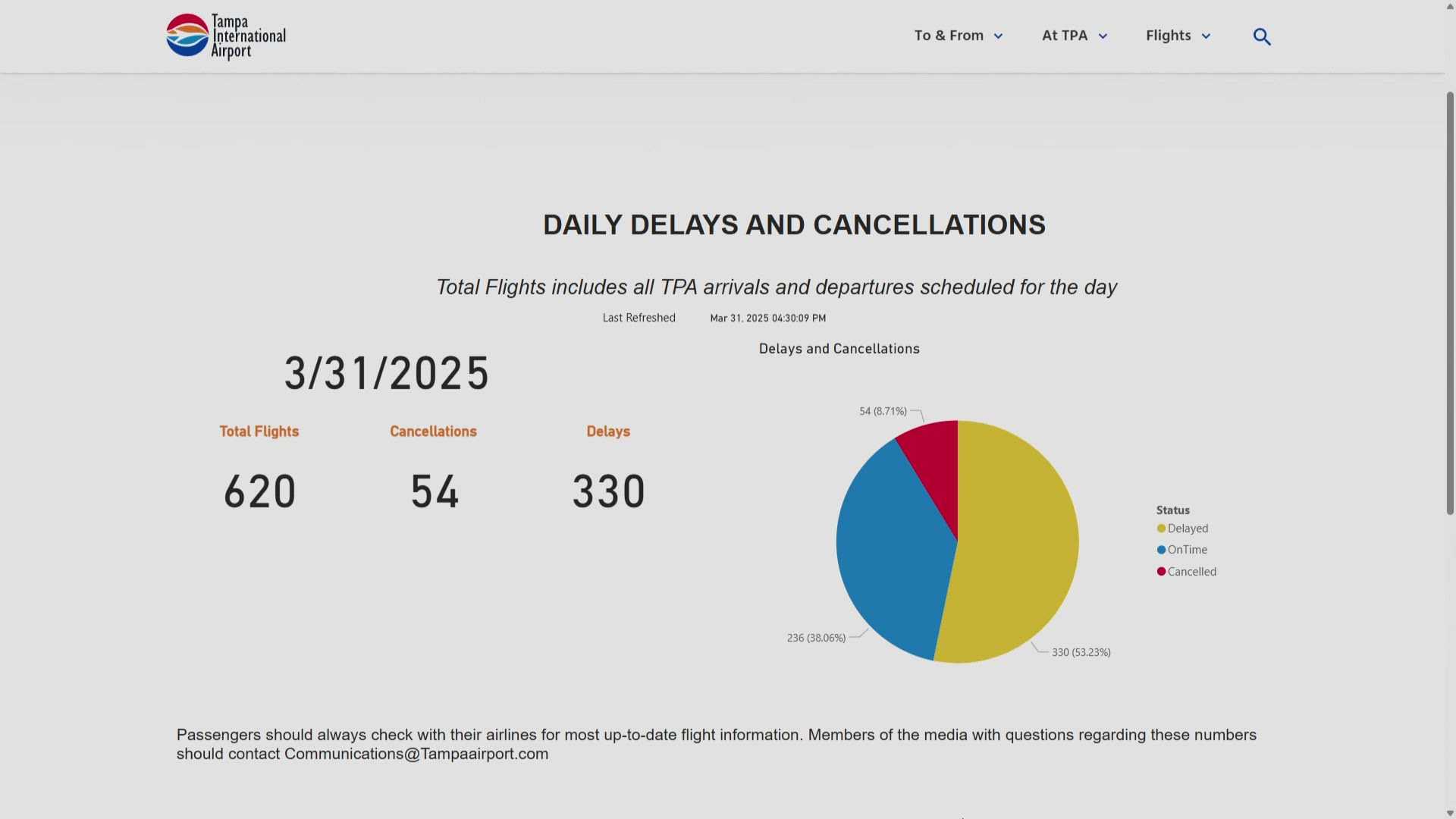News
Severe Weather Causes Widespread Flight Delays at Tampa International Airport

TAMPA, Fla. — Flight disruptions continued to affect travelers at Tampa International Airport on Monday, with more than half of the 622 scheduled flights experiencing delays or cancellations. Thunderstorms and inclement weather in other parts of the United States significantly contributed to these disruptions.
As of 11:45 p.m., 10 Tampa Bay reported a total of 361 flight delays and 69 cancellations. A spokesperson for Tampa International Airport (TPA) stated that the severe weather, particularly thunderstorms, resulted in late arrivals for many flights. ‘The delays are primarily due to thunderstorms and other inclement weather in the eastern U.S., which is causing many late arrivals into Tampa. As always, we encourage passengers to check with their airlines for the latest flight schedules before arriving at the airport,’ the spokesperson said.
Flight delays are not uncommon, particularly during adverse weather conditions, but they can leave travelers anxious about making their connecting flights or meeting important commitments. In 2024, a considerable number of flights faced delays for varying reasons, leading to extended waiting times for passengers globally.
Bad weather remains a leading cause of delays, with factors such as snow, heavy rain, and ice contributing to extended ground times. Issues like the need to de-ice aircraft can also prolong the time between scheduled flights. Interestingly, after January, June and August were noted to be the heaviest months for weather-related delays.
Moreover, incoming plane delays comprised more than 57 percent of all delays in 2024. These often occur due to previous delays, maintenance issues, or increased traffic, leading to a backlog of late landings and takeoffs.
Ground stops, which involve air traffic control halting departing flights, can arise from various factors, including bad weather, staff shortages, or national emergencies like the 9/11 attacks. Recognizing potential flight disruptions ahead of time can significantly aid in travel planning.
Travelers are encouraged to monitor weather forecasts leading up to their flight days. Advancements in weather technology mean that storms brewing well in advance can be tracked, enabling passengers to alter their plans accordingly.
Kaufman, a travel expert with extensive experience, advises travelers to book early morning flights to avoid the cascading delays caused by earlier flights running behind schedule. ‘Delays have a snowball effect impacting other flights throughout the day,’ Kaufman noted. ‘Airlines reset overnight and do their best to get caught up. So, I always try to book the first flight out of the day, as they are less likely to be delayed.’
In light of ongoing flight disruption challenges, utilizing flight tracking apps can further aid travelers by providing real-time information about flight statuses. These applications allow users to check the status of flights, including information about gate changes and delays, even prompting notifications directly to users.
For smartphone users, text notifications regarding flight statuses can be particularly useful. Given the unpredictable nature of air travel, proactive measures can help mitigate potential inconveniences associated with last-minute flight changes.
While delays are an unfortunate aspect of travel that can complicate plans, passengers can choose to use the time productively while waiting. Frequent travelers like Kaufman suggest that when faced with delays, one should try to relax and perhaps find enjoyment in the travel experience itself, even if it means spending unexpected time in a new city.












